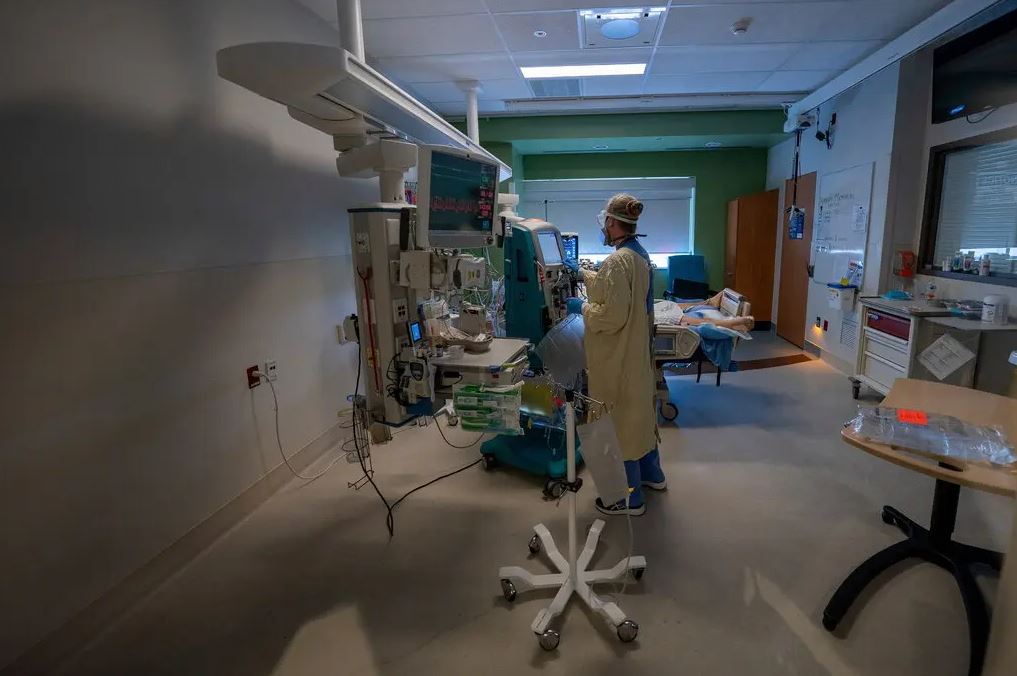Researchers in Canada stated on Tuesday that those who had been infected with the coronavirus had a considerably increased risk of being diagnosed with Type 2 diabetes within a year of having been infected with the virus, in comparison to those who had not been exposed to the virus.
The researchers discovered that males had a higher risk of developing diabetes compared to women. In comparison to those who did not have the infection, those who were so ill that they needed to be admitted to the hospital had more than double the risk of eventually being diagnosed with diabetes.
The researchers also discovered that the risk of developing diabetes was increased by more than thrice among those who had been hospitalised to critical care. These results contribute to an ever-expanding body of research about the long-term consequences of Covid.
The research was conducted in British Columbia and published in JAMA Network Open. It utilised a large data set from that province to compare diabetes diagnoses among more than 125,000 people who had tested positive for Covid in 2020 and 2021 with those of more than 500,000 people who had not been exposed to the virus during the same time period.
In spite of the fact that covid vaccinations were made commercially accessible in December 2020, the vast majority of participants in both the exposed and the unexposed groups were not completely immunised.
There have been over a dozen research that have looked at the connection between Covid and diabetes. The majority of these studies have shown that there has been a rise in the number of diabetes diagnoses after infection, as well as increased risks for males and those who already have severe condition.
However, these studies do not provide conclusive evidence that the infection causes diabetes. According to the opinions of many authorities, it was conceivable, for instance, that patients who were recuperating from Covid were at a greater risk of being diagnosed with diabetes merely due to the fact that they were getting more consistent treatment.
Dr. Pamela Davis, a professor of medicine at Case Western Reserve University in Cleveland, who co-wrote a commentary accompanying the research, said that despite this, there are plausible biological reasons for a relationship between the two illnesses. The opinion was published with the study.
According to Dr. Davis, the coronavirus is responsible for the death of beta cells in the pancreas, which are responsible for the production of insulin. These cells are filled with ACE2 receptors, which the virus employs in order to get access to the cell.
Additionally, stress plays a part in the development of diabetes, and the inflammatory response that occurs in conjunction with COVID has been related to the death of beta cells in the body. People who have severe cases of COVID may also develop antibodies that cause the patient to have an immune response against their own body.
According to Dr. Janjua, whose research before to the pandemic concentrated on hepatitis, other viral infections have also been connected with the development of diabetes. This association was made by Dr. Janjua.
According to the findings of the latest research, persons who had a positive test for the virus had a 17 percent increased risk of developing diabetes within a year of having a positive test for the virus. When compared with those who had not been exposed to diabetes, the likelihood of diabetes developing in men was increased by 22 percent. Unless the women were hospitalised or admitted to an intensive care unit, the increased risk for women was not statistically significant overall.
The researchers paired persons who had been infected with the virus with those who had not been exposed to it based on age and gender, and then made changes to account for variations in underlying health problems, socioeconomic status, vaccination status, and other characteristics.
According to their calculations, a covid infection might be responsible for around 3.4 percent of all newly diagnosed cases of diabetes. 4.75 percent of newly diagnosed cases in males were shown to be attributable to Covid.

